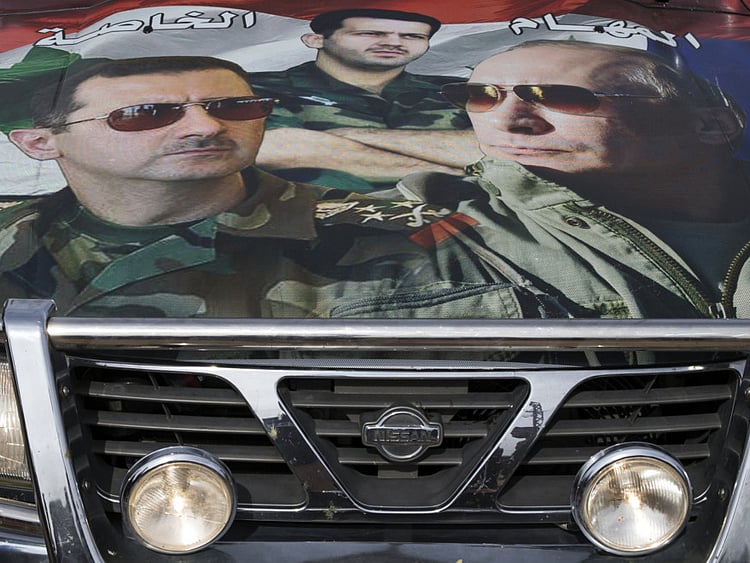Putin’s gameplan for Russia to stay in Syria
Syria is projected as Moscow’s long-term stronghold that will cement its Mideast access

Damascus: Vladimir Putin is beefing up his involvement in Syria, five years after his army rumbled into the Syrian battlefield in September 2015.
Last week, the Russian president ordered his defence and foreign ministries to negotiate an expansion of Russian facilities in Syria. Currently, Russia has two permanent military bases in Syria, regulated by a bilateral 2015 treaty that lasts until 2065. One is in an air base southeast of the port city of Latakia and another is a naval base in the nearby city of Tartous.
From both they have led the Syria battles for the past five years and overseen the political process first in Astana and then in Sochi.
New locations
The new agreement gives the Russians access to four new locations, setting up roots throughout the coastal areas. The first of these will be in the vicinity of the Armenian village of Kassab, north of Latakia. It will be transformed into a new Russian military base.
Christian residents of that area would probably welcome the Russians, having suffered greatly from a brief Daesh takeover in 2014.
Secondly, the Russians are eyeing the premises of the Naval Research Institute in Latakia city, which they want to transform into lodging for the families of their troops stationed nearby. It is situated wall-to-wall with a famous resort on the Mediterranean, making it perfect for leisure.
Third will be the Bayda Port on the Mediterranean Sea, currently used by the Syrian Navy. It will be expanded and upgraded, becoming Russia’s third port in Syria. Fourth and last will be the area of Al Mintar, south of Tartous, where the Russians hope to build a new city to house refugees returning from Turkey and Lebanon, especially those whose homes were destroyed by the fighting and are waiting to be rebuilt.
Repatriating those refugees has been a constant theme in Putin’s Syria policy since 2018. Many of them are family members of fighters with the armed opposition.
The new territory will increase Russia’s already paramount influence in Syria, possibly even undermining that of the Iranians, who have no similar bases throughout the country, although their troops remain embedded with the Syrians throughout the battlefield.
“The Kremlin makes its bets on the long-term presence in the region” said Dimitry Frolovskiy, a Russian Middle East analyst. Speaking to Gulf News, he added: “Syria is projected as the Russia’s long-term stronghold that will cement its access to the Middle East. The only concern though is whether Russia is actually able to compete with the Iranian entrenchments in Syria or its assessments of the region is based on facts and not just wishful thinking.”
Special envoy
The expansionism comes just days after Putin upgraded the status of his diplomat in Damascus from ambassador to Special Presidential Envoy. Alexander Efimov, who had previously served as Russia’s ambassador to the UAE, will now be handling the Syria file with two top Putin aids, Alexander Lavrentiev and Mikhail Bogdanov of the Russian Foreign Ministry. The former had handled military issues like the “de-escalation zones” while Bogdanov focused on the political process at Astana.
Efimov, who has been based in Damascus since 2018, will now get to move more freely within Syria, without having to go through the official channels at the Ministry of Foreign Affairs like other accredited diplomats.
“We know that a number of senior Russian officials have been pressing Syria for certain reforms and demanding greater benefits for Russia” said Syria expert Joshua Landis, a professor at the University of Oklahoma.
Speaking to Gulf News, he added: “It is in this light that we should understand Putin’s personal intervention on the question of basing and Russian policy in Syria at this time. He undoubtedly hopes to settle the differences between both governments and key officials.”
Sign up for the Daily Briefing
Get the latest news and updates straight to your inbox
Network Links
GN StoreDownload our app
© Al Nisr Publishing LLC 2026. All rights reserved.